#sarah rutsen
Photo

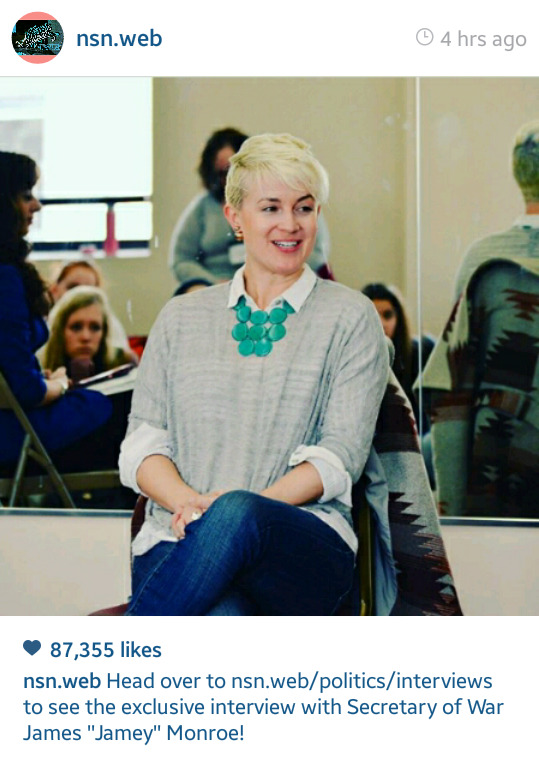


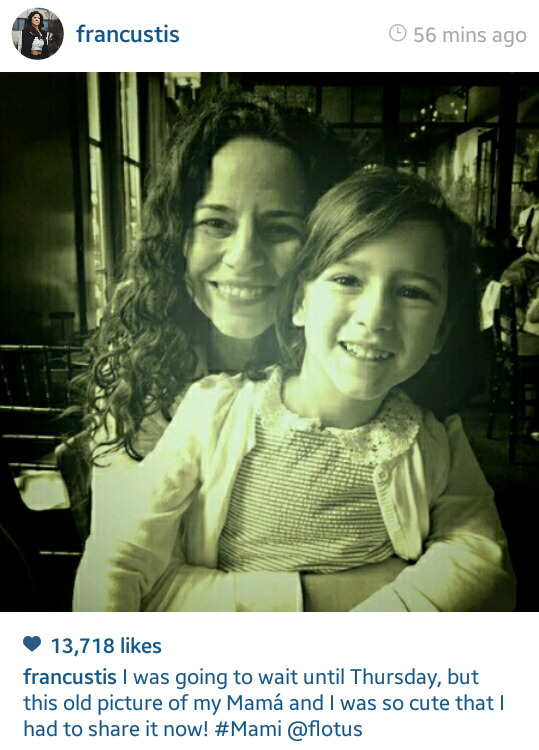



#sarah rutsen#emmy raver lampman#charlotte of mecklenburg-strelitz#lea michele#james monroe#betsy struxness#tench tilghman#alysha deslorieux#john hancock#voltaire wade greene#abigail adams#elizabeth judd#martha washington#mandy gonzalez#frances custis#arianna afsar#maria reynolds#aubin wise#peggy schuyler#jasmine cephas jones#marquis de lafayette#daveed diggs#adrienne de lafayette#andrew chappelle#eliza hamilton#phillipa soo#kloe schuyler#auli'i cravalho#john payne todd#jordan fisher
79 notes
·
View notes
Text
AH and Matthew Clarkson, again
See my Clarkson post1 post2 post3. My investigation into Clarkson began because JCH wrote the following (LAH, vol 7):
At [AH’s] bedside [on his deathbed] were his wife and children - the grieving clergy - his tearful physician - and his much-beloved Clarkson.
We also know from a letter from Clarkson to King that AH requested that Clarkson be with him.
Yet Clarkson is not mentioned anywhere that I’ve come across as one of AH’s closest friends, even though there is evidence (see post2 again) of prior knowledge of the duel, conversations with EH, and concern for the Hamilton children after AH’s death. One of the reasons for this may be the lack of surviving letters between AH and Clarkson. In mature adulthood, they also were usually both in NY, so it’s not clear how many letters there ever were. (As an aside, Robert Troup at times hung out with AH every day in the late 1790s - in law practice together, but still - why not speculate on this as AH’s most intimate friendship, Chernow?!)
The new part: I found the remainder of the letter of Matthew Clarkson to AH, 20Aug1798, with the part that’s not on Founders:
New York August 20th 1798
Dear Sir
I have reflected maturely on our conversation of yesterday. The result is, as far as I can with propriety I decline, at present, any military appointment. The duty I owe my Family seems to demand this of me, nor can I believe I give too great weight to this consideration when I consider the very small probability there is of any serious military operations taking place in this Country and the real injury I should sustain by being called from my present pursuits [remaining text not included on Founders] These however are my reflections, if they are wrong, counsel me otherways, at any rate believe me with the greatest Regard & Esteem
Dear Sir
Yours very Sincerely
M. Clarkson
This does change the tone of the letter, from a formal rejection of an appointment to a more congenial “tell me if I’m wrong” informality (including the ending). Check out the original page here.
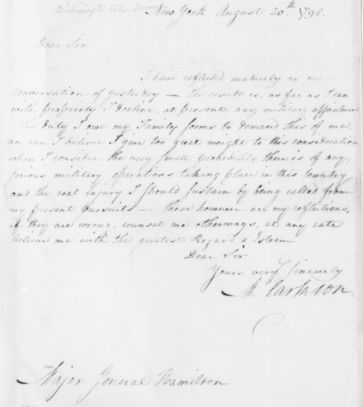
Below is text of a letter from John Jay (married to Clarkson’s first cousin, Sarah L. Jay, Sarah and Matthew’s mothers’ were French sisters) to GW, encouraging GW to appoint Clarkson as Marshall of the District of NY (he does) (13Mar1791):
...I take the Liberty of communicatg my sentiments respecting a Gentleman who too delicate to display his own merit, possesses more than falls to the Share of many—I mean General Matthew Clarkson.1 I think him one of the most pure & virtuous Men I know—when at Boston General Lincoln (whose aid he was) spoke to me of him in Terms not only of Approbation but affection—During the war he was a firm & active Whig, and since the Peace a constant Friend to rational and good Government. Few men here of his standing enjoy or deserve a greater Degree of the Esteem & goodwill of the Citizens than he does, and in my opinion he would discharge the Duties of that or any office for wh. he may be qualified with Propriety and Honor.
What else have I not included yet - Clarkson was at Yorktown (under Gen. Lincoln). I already speculated in the prior post that because Clarkson was William Livingston’s nephew, he and AH could have known each other as early as 1773. They’re certainly around the same people all of their lives thereafter.
Here’s the politicalgraveyard.com summary for Clarkson (helpful to have some of the relatives listed!)
Clarkson, Matthew (1758-1825) — of New York, New York County, N.Y. Born in New York, New York County, N.Y., October 17, 1758. General in the Continental Army during the Revolutionary War; member of New York state assembly from New York County, 1789-90; member of New York state senate Southern District, 1793-95; president, Bank of New York, 1804-25. Died in New York, New York County, N.Y., April 25, 1825 (age 66 years, 190 days). Burial location unknown.
Relatives: Son of Elizabeth (French) Clarkson (1724-1808) and David Clarkson (1726-1782); married, May 25, 1785, to Mary Rutherfurd (1767-1786); married, February 14, 1792, to Sarah Cornell (1761-1803); great-grandson of Anthony Brockholls and Phillip French; second great-grandfather of Peter Augustus Jay; first cousin of Henry Brockholst Livingston; first cousin once removed of Matthew Clarkson (1733-1800) and William Jay; first cousin twice removed of John Jay II; first cousin thrice removed of Charles Ludlow Livingston; first cousin four times removed of Brockholst Livingston; second cousin once removed of James Jay and Frederick Jay; third cousin of Jeremiah Van Rensselaer, Robert Van Rensselaer and James Livingston; third cousin once removed of Robert R. Livingston, Edward Livingston, Peter Robert Livingston (1766-1847), Jacob Rutsen Van Rensselaer, Philip Jeremiah Schuyler, Maturin Livingston and Peter Gansevoort; third cousin twice removed of Philip Schuyler, James Alexander Hamilton, Peter Robert Livingston (1789-1859), Gerrit Smith and Elizabeth Cady Stanton; third cousin thrice removed of John Jacob Astor III and Cortlandt Schuyler Van Rensselaer.
Political families: Livingston-Schuyler family of New York; Roosevelt family of New York City, New York (subsets of the Three Thousand Related Politicians).
#Matthew Clarkson#Alexander Hamilton#John Jay#Sarah L. Jay#William Livingston#and then I read all of post1 again and realized I actually quoted the whole Clarkson#letter correctly there#oh well
20 notes
·
View notes
Photo
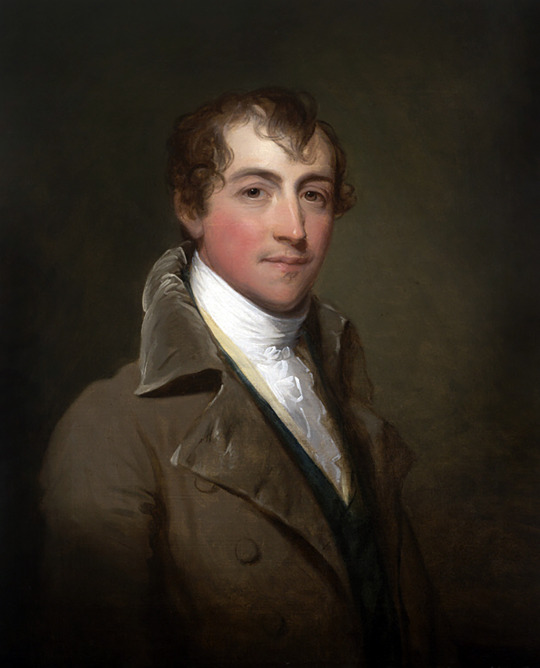
Philip Jeremiah Schuyler by Gilbert Stuart, 1807. Happy birthday Philip!
“251 Years ago, Philip and Catharine Schuyler’s middle son was born. Philip recorded the event in the family’s Dutch bible, writing, ‘January the 20th was born our eight child named Philip Jeremiah, baptized by Domine Eliardus Westerlo. Witnesses Robert Van Renselaer and Barbara Schuyler. The Lord grant that he may grow up to the glory of God and according to His will.’ [...] Philip Jeremiah possessed every quality his brothers, John Bradstreet and Rensselaer, lacked, according to their father. He was a studious and well-educated boy. As a child, he was instructed in English grammar, French, Catechism, and the German flute among other subjects. He likely received some tutoring at the Academy at Albany, as a 1783 receipt indicates, as well.
While his brothers, especially Rensselaer, were competent students, Philip Jeremiah was the only son to go to college. In 1787, at the age of 19, Philip Jeremiah studied at Columbia College (now Columbia University). He studied with William Cochran, who taught Latin and Greek at the college. As the only Schuyler son to attend college, his father had high expectations for him. Elder brother Johnny had proven to be a lousy businessman, much to Schuyler’s disappointment. Although Rensselaer, aged 14 when Philip Jeremiah entered college, was still young, he would eventually become addicted to gambling and accrue a large amount of debt. Philip Jeremiah quickly became his father’s one chance at a son achieving renown. He likely hoped for Philip Jeremiah to become a lawyer.
Yet it seems as if Philip Jeremiah didn’t finish his coursework at Columbia. Instead, he did something his father did not want him to do, and something that surprised his family. Philip Jeremiah, the golden child, eloped. [...] Philip Jeremiah did two things that likely infuriated his father: he dropped out of Columbia College and eloped. He likely dropped out of Columbia College to elope and start his married life. Philip Jeremiah was twenty when he married Sarah Rutsen, who was eighteen at the time. They married on May 31, 1788. Where they married is not known, although her family home is certainly a possibility, since it doesn’t seem to have been an elopement for her, but only for her husband. [...]
His primary occupation was in agricultural pursuit, however, like his father, Philip Jeremiah entered the political field at both the State and Federal levels, serving in the New York State Assembly in 1798 and the United States Congress from 1817-1819. At the time of his father’s death in 1804, Philip Jeremiah was named as one of the executors of the will, along with his brother Rensselaer Schuyler, and brothers-in-law John Church and Stephen van Rensselaer.
Sarah had passed away the year before, in 1803, leaving Philip Jeremiah with four children. He later remarried, this time to a woman named Mary Ann Sawyer. Philip Jeremiah and Mary had only one child who survived to adulthood, however they eventually helped to raise several of the children of his sister, Cornelia, after the successive deaths of both herself and her husband in 1806 and 1810 respectively. Philip Jeremiah died, likely of tuberculosis, in 1835 at the age of sixty-seven.”
- The Schuyler Mansion
15 notes
·
View notes
Note
There's really not a lot of info as to how Philip Schuyler educated his children (daughters & sons alike) that I can find, so how did he do it? After all, they had to have got their education from somewhere.
Great question! The best resource I’ve seen on this is the Schuyler Mansion’s blog. Much of the Schuyler children’s education, much like Philip Schuyler’s own, came from a combination of tutors and self-directed reading. The library at the Pastures was truly impressive:
Philip Schuyler’s library generally contained over two hundred books at any one time, including books on law, math, science, philosophy, architecture and engineering, navigation, history, and a smattering of popular fiction and poetry. There were books in at least six languages - Dutch, English, French, German, Latin, and Greek- suggesting Philip had some of level of literacy in each of these languages. (”Library,” Schuyler Mansion State Historic Site.)
The legal books would later be utilized by Alexander Hamilton when he was studying for the bar. Schuyler’s sons and daughters were all encouraged to make use of the library:
Philip, following in the traditions of his Dutch heritage, encouraged his daughters to read a broad variety of subjects, including history, geography, arithmetic, philosophy, and French. Later letters from the girls indicate that their education did not end with these subjects. Instead, the girls explored subjects such as German, Latin, finance, astronomy, and many more. (”Yellow Bed Chamber,” Schuyler Mansion State Historic Site.)
John Bradstreet and Rensselaer Schuyler were both tutored, but neither particularly distinguished themselves academically. Only Philip Jeremiah Schuyler received more formal schooling. His father paid for some tutoring at the Academy at Albany in 1783, and in 1787, he was admitted to Columbia. During his first year of college, however, he met and fell in love with Sarah Rutsen, and quickly dropped out of school to get married, much to his father’s dismay. (“The Rebellious Son: Philip Jeremiah’s Elopment,” Schuyler Mansion State Historic Site.)
16 notes
·
View notes
Photo



(Introducing Samantha “Peanut” Pollino as Marina Sawyer)
#philip jeremiah schuyler#sydney harcourt#sarah rutsen#emmy raver lampman#mary anna sawyer#polyamory#hamilton#modern hamilton#hamilton au#social media au#filler post#samantha pollino
721 notes
·
View notes
Photo





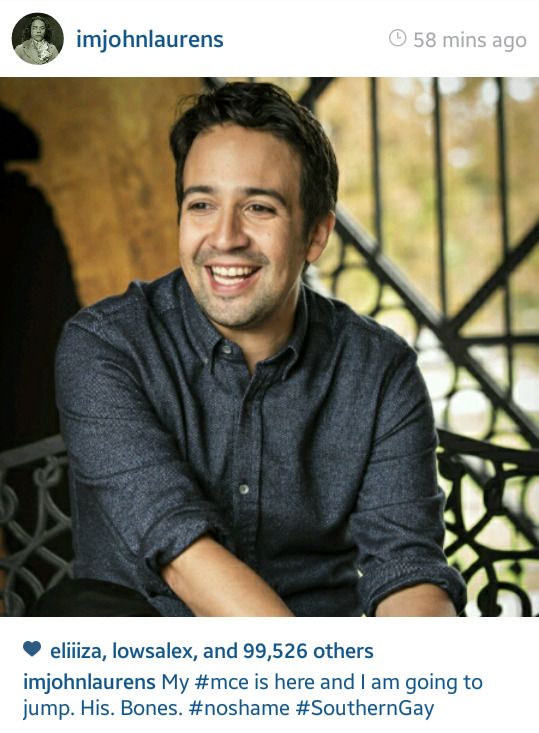

Okay, I’m tentatively back. Also, notice there’s a wild watermark floating around in the post. PLEASE don’t steal the picture and/or remove the mark.
Your eldest child will be killed by a firefighter if you do.
#philip hamilton#eliza hamilton#philippa soo#theodosia prevost burr#nicolette robinson#martha manning#karla puno garcia#frances laurens#maria reynolds#aubin wise#john parke custis#joseph morales#daniel parke custis jr#jose ramos#mary anna sawyer#samantha pollino#sarah rutsen#emmy raver lampman#john laurens#anthony ramos#alexander hamilton#lin-manuel miranda#king george iii#hamilton#modern hamilton#hamilton au#social media au#instagram shenanigans
73 notes
·
View notes
Photo






#mary anna sawyer#samantha pollino#sarah rutsen#emmy raver lampman#philip jeremiah schuyler#sydney harcourt#hamilton#modern hamilton#hamilton au#social media au
47 notes
·
View notes
Photo







#john church#javier muñoz#sarah rutsen#emmy raver lampman#samuel seabury#thayne jasperson#charles lee#jon rua#peggy schuyler#jasmine cephas jones#charlotte of mecklenburg-strelitz#lea michele#john payne todd#jordan fisher#john adams#rafael casal#abigail adams#elizabeth judd#alexander hamilton#lin-manuel miranda#eliza hamilton#phillipa soo#hamilton#modern hamilton#hamilton au#social media au#instagram shenanigans
141 notes
·
View notes
Photo

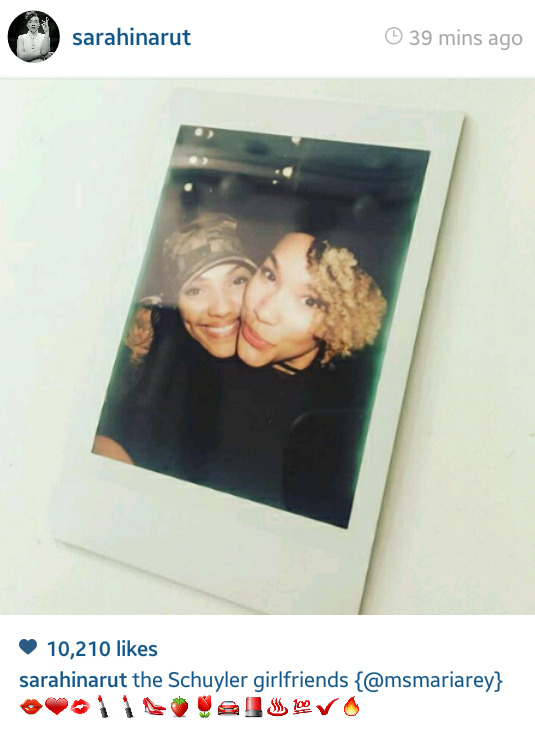
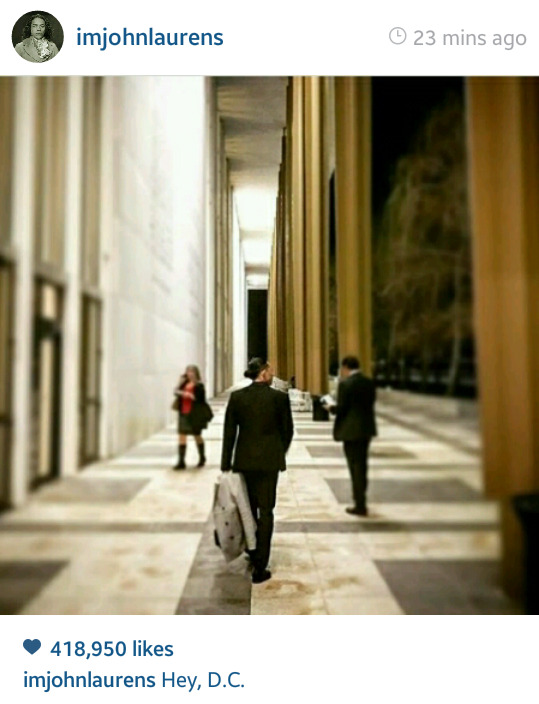






Goings on in D.C.
#john church#javier muñoz#sarah rutsen#emmy raver lampman#maria reynolds#aubin wise#john laurens#anthony ramos#martha washington#mandy gonzalez#daniel parke custis jr#jose ramos#john adams#rafael casal#sally hemings#ariana debose#john parke custis#joseph morales#peggy schuyler#jasmine cephas jones#america washington#america washington reed#julia jones#kloe schuyler#auli'i cravalho#my ocs#eliza hamilton#phillipa soo#hamilton#modern hamilton
56 notes
·
View notes
Photo
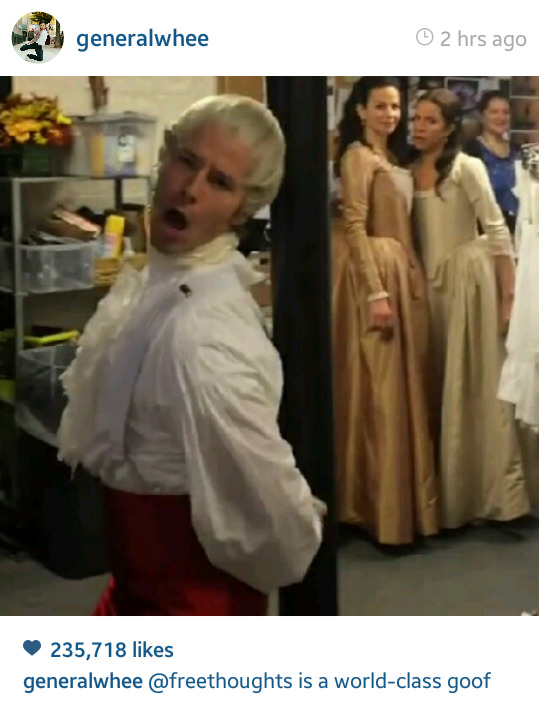









More happiness. Blegh.
#charles lee#jon rua#samuel seabury#thayne jasperson#adrienne de lafayette#andrew chappelle#maria reynolds#jasmine cephas jones#kitten#sarah rutsen#emmy raver lampman#martha manning#karla puno garcia#eliza hamilton#phillipa soo#john adams#abigail adams#rafael casal#elizabeth judd#kloe schuyler#auli'i cravalho#alex lowry#jake t austin#john laurens#anthony ramos#peggy schuyler#john church#javier muñoz#samuel adams#nicholas christopher
80 notes
·
View notes
Photo







#sarah rutsen#emmy raver lampman#philip jeremiah schuyler#angelica schuyler#renee elise goldsberry#john church#javier muñoz#eliza hamilton#phillipa soo#baron von steuben#steven pasquale#john quincy adams
81 notes
·
View notes
Photo







Y'all woulda seen some of these already if you followed my brand new Instagram (america.washington)
#kloe schuyler#auliicravalho#eliza hamilton#phillipa soo#alexander hamilton#lin-manuel miranda#john church#javier muñoz#john laurens#anthony ramos#philip jeremiah schuyler#sydney harcourt#sarah rutsen#emmy raver lampman#john payne todd#jordan fisher#dolley madison#sasha hutchings#samuel adams#nicholas christopher#hamiltom#modern hamilton#hamilton au#social media au#instagram shenanigans
40 notes
·
View notes
Note
Would you happen to have any resources on Philip Jeremiah Schuyler? I have a copious amount of headcanons about him as a child, but I would love anything you know about him from letters or books or anything like that.
I’d love to see some of your headcanons! Philip Jeremiah’s definitely an interesting character, and he doesn’t seem to get much attention. Here’s some of the information I dug up on him with links to the source material:
Philip Jeremiah Schuyler was Philip and Catherine Schuyler’s middle son, and he seems to have been the most successful of the three boys. Through his first wife, Sarah Rutsen, he held large tracts of land in Rhinebeck (and, unfortunately, several slaves), and he proved successful enough at managing them for Philip Schuyler to appoint him as his agent to manage Catherine Schuyler’s land in Claverack. (Hamilton did some legal work for him involving a land dispute on the property in April 1804.) He also dipped his toe into politics: serving in the New York Assembly and for one term in the House of Representatives as a Federalist in 1817.
Jessie Serfilippi wrote a great article on the Schuyler Mansion blog about Philip Jeremiah’s elopement to Sarah Rutsen, entitled “The Rebellious Son.” In 1788, Philip Schuyler expressed his displeasure with the match to his eldest son, John: “Your brother Philip is at Rhynbeck and I fear is married, I have not heard from him since he left….” Hamilton, who seemed to relish the role of family peacekeeper whenever Eliza’s younger siblings ran off to marry, wrote to Philip Schuyler with a plea for familial harmony in early 1789. In response, on May 20, 1789, his father-in-law assured him:
Your anxiety that the Harmony of the family should be compleat, affords me the most pleasing sensations and I am happy that I can assure you that your wishes have been anticipated at least as far as immediately depends on me. Philip4 has visited me since his return from England he is returned to his wife with a message from me that will afford her comfort & confidence in my friendly intentions towards her. I have charged him to bring her here immediately on the Arrival of his Mother & Sisters—and since the receipt of yours and Angelicas5 letter announcing that she is to come by land, I have written Philip and Sally6 to accompany their Sister home. Mrs. Schuyler before she left this was persuaded that It7 could answer no one valuable purpose to continue unreconciled I encouraged the sentiment And trust in a perfect reconciliation on her part.
Philip Jeremiah and Sarah had five children together, and appeared to live happily until she passed away due to complications from childbirth in 1803. A few years later, he remarried to Mary Anna Sawyer, and together they had three more children. (Biographical sketch from Stefan Bielinski). His youngest son, George Lee Schuyler, married Hamilton’s granddaughter, according to James A. Hamilton.
On July 11, 1804, Angelica Church wrote to Philip Jeremiah with the tragic news of Hamilton’s duel:
My Dear Brother: I have the painful task to inform you that Gen. Hamilton was this morning wounded by that wretch Burr, but we have every reason to hope that he will recover. May I advise that you repair immediately to my father, as perhaps he may wish to come down.
My dear sister bears with saintlike fortitude this affliction. The town is in consternation, and there exists only the expression of grief and indignation.
Adieu my dear brother, Ever yours, A. Church. (Intimate Life, pp.404-405)
When Philip Schuyler passed away shortly after Hamilton, in November 1804, Philip Jeremiah was one of his executors, along with Stephen Van Rensselaer III and John Church. Philip Schuyler had deeded some land to Eliza shortly before his death, and, sadly, this became a point of great contention between Eliza and her younger sisters, who felt like she was claiming a greater share of her father’s property than she was due. Eliza wrote to Philip Jeremiah on 4 January 1805:
a report has prevailed that my father gave me six thousand Dollars before I left him. let me assure you it is an un truth, it has given me some pain that I should have been heald up to the publick in so unfavourable a point of view as on the one hand to request you to make provision for me by some Arrangement, and on the other (as is is said) to be so amply provided by my father.
The Schuyler Mansion blog has another very informative article, “Schuyler Siblings Land Squabble,” detailing Philip Jeremiah’s role in trying to settle the dispute between his sisters.
Philip Jeremiah died in 1835 at the age of 67, likely of tuberculosis.
#philip jeremiah schuyler#alexander hamilton#eliza hamilton#philip schuyler#schuyler family#history#ask
17 notes
·
View notes